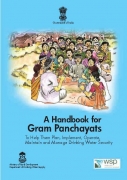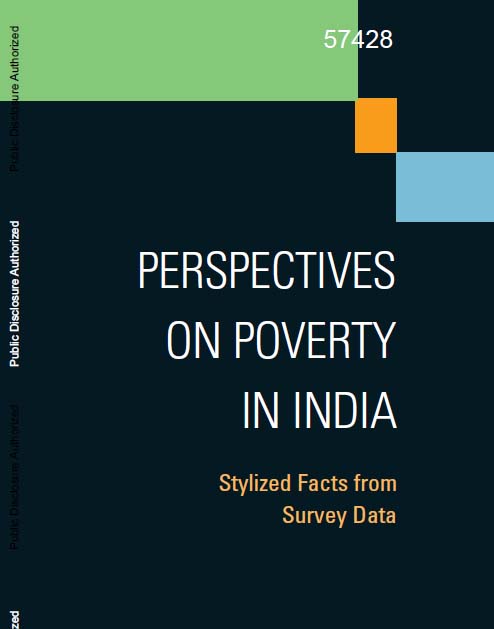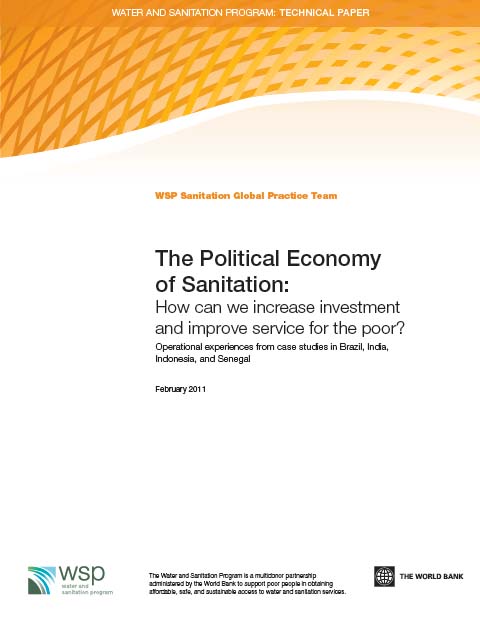/regions/india
India
Suppressed surface heating over north-western parts of the country and the ensuing monsoon rainfall - A report by India Meteorological Department
Posted on 08 Aug, 2011 07:38 AMDuring the year 2011, the temperatures have been below normal over north and northwestern parts of India due to the enhanced activity of western disturbances. These conditions had raised many apprehensions about the possible impact on the subsequent monsoon, if any.
Urbanization and intersectoral competition for water – A report by Woodrow Wilson International Center for Scholars
Posted on 07 Aug, 2011 07:24 PMThe report by Paul P Appasamy and Ruth Meinzen Dick deals with urbanization and intersectoral competition for water founded on the view that stereotypical images of “thirsty cities” that equate urban demand with “drinking water” or factories, and rural water supply with irrigation do not adequately portray the water uses in each area.
Rural drinking water supply and sanitation - Standard operating procedure for responding to natural disasters - Department of Drinking Water and Sanitation
Posted on 05 Aug, 2011 08:37 PMThis standard operating procedure developed by the Department of Drinking Water and Sanitation includes all functions pertaining to disaster prevention, institutional mechanism, preparedness, early warning, relief, recovery and rehabilitation. It will apply to RWSS Department/ PHED/ PRED/ Sanitation Departments/ Board dealing with rural water supply and sanitation for natural disasters that the State is prone to. The standard operating procedure will not be applicable to nuclear, biological and chemical disasters.
Small and mini hydel projects – Standing Committee on Energy – Sixteenth Report (2010-2011)
Posted on 03 Aug, 2011 03:57 PMThe Committee took evidence of the representatives of the Ministry of New and Renewable Energy (MNRE) in January, 2011.
Sustainable Development Framework for the mining sector in India – A report by the Ministry of Mines
Posted on 29 Jul, 2011 01:03 PM It does this in light of the recommendations of the Anwarul Hoda Committee, a High Level Committee set up by the Planning Commission in 2005. The draft SDF prepared by ERM India Pvt. Ltd. for the Ministry of Mines was released recently for seeking public comments before its formal adoption. It presents a set of guiding principles for the mining sector in India, which aims at achieving resource efficiency, business viability and environment stewardship around development of affected communities.
It does this in light of the recommendations of the Anwarul Hoda Committee, a High Level Committee set up by the Planning Commission in 2005. The draft SDF prepared by ERM India Pvt. Ltd. for the Ministry of Mines was released recently for seeking public comments before its formal adoption. It presents a set of guiding principles for the mining sector in India, which aims at achieving resource efficiency, business viability and environment stewardship around development of affected communities.
Water.org invites applications for South Asia Regional Director based at India
Posted on 28 Jul, 2011 05:43 PMWater.org, a non-governmental organization working to solve the global water and sanitation (WSH) crisis, seeks an experienced, innovative Regional Director to lead its professional South Asia team in India.
Plastic Waste (Management and Handling) Rules (2011)
Posted on 28 Jul, 2011 08:21 AMThis document on the Ministry of Environment and Forests site includes the Plastic Waste (Management and Handling) Rules replaces the earlier Recycled Plastics Manufacture and Usage Rules,1999 (amended in 2003).
Managing drinking water security - A handbook for Gram Panchayats by the Department of Drinking Water Supply (MoRD)
Posted on 27 Jul, 2011 10:03 PM This handbook for Gram Panchayats has been prepared by the Water and Sanitation Program (World Bank) for the Department of Drinking Water Supply, Ministry of Rural Development, Government of India.
This handbook for Gram Panchayats has been prepared by the Water and Sanitation Program (World Bank) for the Department of Drinking Water Supply, Ministry of Rural Development, Government of India.
The Department of Drinking Water Supply (DDWS) launched the National Rural Drinking Water Program (NRDWP) in April, 2009. The NRDWP builds on experiences gained through past efforts by many stakeholders and brings all existing rural drinking water initiatives under a single program. The focus of the NRDWP is to ensure drinking water security for all rural citizens in India. Drinking water security means providing every rural person with enough safe water for drinking, cooking and other domestic needs at all times and in all situations, including periods of drought and flood and for livestock.
Perspectives on poverty in India - Stylized facts from survey data – A report by World Bank
Posted on 26 Jul, 2011 04:38 PM It produces a diagnosis of the broad nature of the poverty problem and its trends in India, focusing on both consumption poverty and human development outcomes.
It produces a diagnosis of the broad nature of the poverty problem and its trends in India, focusing on both consumption poverty and human development outcomes.
It also includes attention in greater depth to three pathways important to inclusive growth and poverty reduction harnessing the potential of urban growth to stimulate rural-based poverty reduction, rural diversification away from agriculture, and tackling social exclusion.
The political economy of sanitation - How can we increase investment and improve service for the poor? – A report by Water and Sanitation Program
Posted on 26 Jul, 2011 02:53 PM This global study attempts systematically to understand and thus help practitioners manage the political economy of pro-poor sanitation investments and service provision.
This global study attempts systematically to understand and thus help practitioners manage the political economy of pro-poor sanitation investments and service provision.
It aims to provide practical advice to multi-lateral agencies and sanitation practitioners to help them better manage stakeholder relations and effectively maneuver within the complex institutional relationships of the sanitation sector in order to enhance the design, implementation, and effectiveness of operations that provide pro-poor sanitation investments and services. The ultimate goal is to improve health and hygiene outcomes.
This study follows current approaches to political economy - interdisciplinary inquiry drawing upon social and political theory and economic principles - to understand how political actors, institutions, and economic processes influence each other. This study’s conceptual framework combines a diagnostic component with a typology of actions to help translate analytical findings into more effective support to operations and investments.